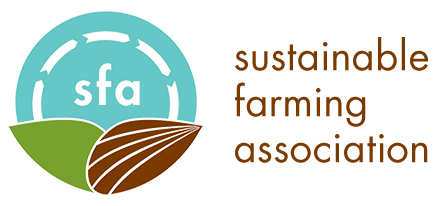Beyond Your Backyard: Little Things That Make the World Go ‘Round
June 22-28 is National Pollinator week. One week to celebrate the little things that make the world go round. What’s all the buzz? Pollinators are a huge group of insects with species that have different life histories, biologies, and needs. They boggle the mind at all that they’re doing right under our noses and we don’t even know a quarter of what that is.
Over 80 percent of the world’s flowering plants need a pollinator.
Bees are arguably the most important pollinator because they are the only group that actively collects pollen and nectar and they do something known as floral constancy, which is to pollinate individuals from the same species at once. So if it’s purple prairie clover pollinating time (say that 10x fast) they go from purple prairie clover to purple prairie clover instead of throwing a black-eyed Susan in the mix. This means they are efficient and are actually pollinating by ensuring the pollen they carry matches the next flower they visit.
There are over 450 different kinds of bees in Minnesota – all with a unique role to play. Check out some of these images from USGS Wildlife Biologist’ Sam Droege. They show bees to be truly wild and wonderful.
Globally, a compiled index of all invertebrate population declines over the past 40 years shows an overall 45 percent decline. There’s strong variation depending on the group of insects with some showing nearly 100 percent declines and others remaining stable. Nothing illustrates the loss better for me than my own childhood memories of stopping at gas stations and fighting with my brother over who got to squeegee the bugs off the windshield. Now, I can’t remember the last time I needed to squeegee anything off the windshield, let alone fight about it.
Habitat loss, pesticide use, pathogens and introduced species, and climate change are the main causes of decline.
Many insect pollinators are food for other wildlife. They are one of the bases of the wild food pyramid. When they decline, we are seeing links with other groups higher up the chain that depend on them also declining.
Most of the interesting and delicious things we eat are because of a pollinator. To name just a few: pizza (tomato sauce: tomatoes pollinated by bumble bees), chocolate (cacao pollinated by a fly, the chocolate midge), your morning cup of coffee (pollinated by bees, wasps, flies, butterflies, and moths) and breakfast blueberry muffin (pollinated by bumble bees and solitary bees).
So what does this mean other than a lot of really overtired, hangry people without bees and other pollinators? It means summers as we know them with watermelon slices at picnics, s’mores at campfires, and Friday pizza night will be forever changed if we don’t figure out a way to slow and, hopefully, stop these declines. The good news is there are things we can do to help: plant a diversity of native flowers that bloom all season long, reduce or eliminate pesticide use, leave open bare ground for nesting sites, and talk to others about what the bees (and other pollinators) need.
Pollinators aren’t just insignificant bugs. They are literally shaping our lives and experiences by connecting us to the things we eat and the world around us. They help us track the seasons and provide us with iconic symbols of change: strawberries for spring, s’mores for summer, and pumpkins for fall. And all the while they are painting us a world filled with color – every flower, every tree, every fruit, every plant they touch fills the canvas with vibrant sensations and wonder. A world without them is truly a world without color.
Like many of our holidays, celebrating during the week or day is wonderful, but I would hope the thankfulness of Thanksgiving, the mischief of Halloween, the love of Valentines Day, the excitement at a New Year, and the joy of discovery that’s found in observing a bee dusted with pollen, a caterpillar change to a butterfly, or a beetle lumber from flower to flower during pollinator week sticks with us throughout the year. Now if you’ll excuse me, I think I’ll go plant some more native wildflowers to help them out.
#discovertheprairie #pollinatorweek


